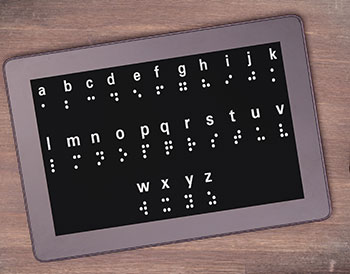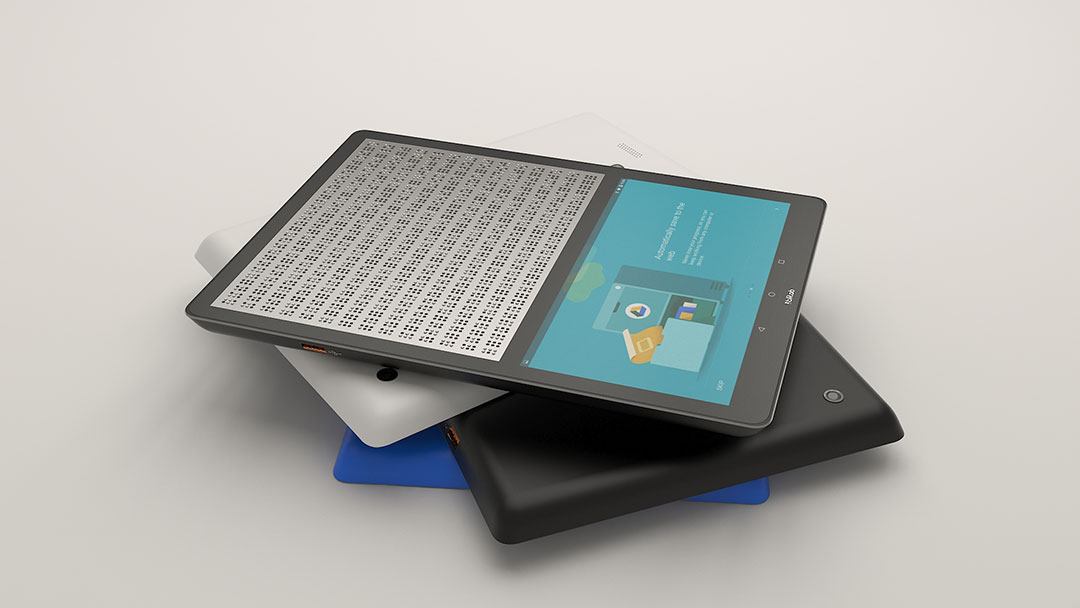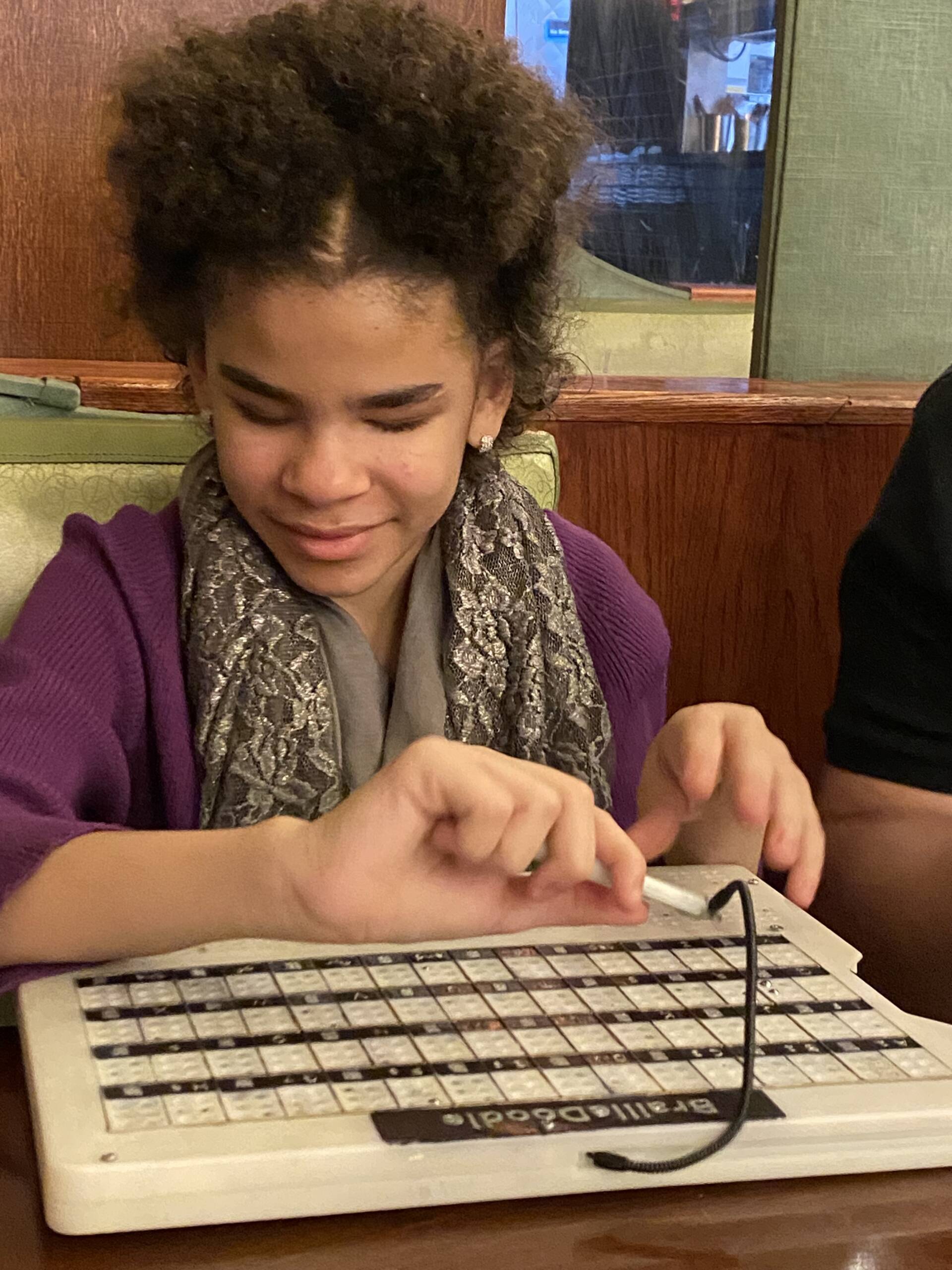Empowering Independence With Assistive Innovation for the Blind
The combination of assistive modern technology into the lives of individuals with aesthetic impairments represents a substantial advancement in advertising independence and self-sufficiency. From innovative screen readers to advanced smart canes, these tools not only enhance daily navigating and interaction however additionally empower customers to engage meaningfully in various elements of life. As we check out the myriad advantages and real-world applications of these innovations, it comes to be crucial to examine the hidden elements that contribute to their performance and the potential for future advancements in this essential field.
Introduction of Assistive Innovation

The development of assistive modern technology is grounded in concepts of inclusivity and empowerment. Advancements in software program, hardware, and sensory enhancements provide individuals with options customized to their details requirements. From screen readers that transform message to speech, to responsive tools that share info via touch, these tools change the method people engage with their surroundings.
In enhancement to functional applications, assistive innovation promotes better social incorporation and participation in numerous markets, consisting of education and employment (Assistive technology for the blind). As r & d proceed to evolve, the potential for assistive innovation to further improve the lives of aesthetically damaged individuals stays promising, leading the means for a much more fair culture where everybody can thrive
Sorts Of Assistive Devices
A variety of assistive tools have emerged to sustain people with aesthetic problems, each made to satisfy details requirements and improve day-to-day functioning. These gadgets vary from low-tech options to high-tech innovations, supplying varied choices for users.
Low-tech devices consist of magnifiers and large-print products that aid in reading and writing. Braille tools, such as Braille slates and stylus pens, allow tactile reading and communication. Orientation and mobility help, like white canes, assist individuals navigate their environment safely.
On the greater end of the spectrum, electronic magnification systems and display viewers use substantial support. Electronic magnifiers enable users to expand text and images on screens, while screen visitors convert electronic web content right into synthesized speech, helping with accessibility to info on computer systems and smart devices.
Smart device applications also play a critical function, supplying attributes like text recognition and navigation assistance. Wearable innovation, such as smart glasses equipped with enhanced reality, is arising as an appealing tool to enhance situational understanding.
Benefits of Assistive Innovation
The integration of assistive technology dramatically enhances the lifestyle for people with visual problems. These modern technologies empower users by promoting self-reliance, allowing them to navigate their atmospheres extra effectively and perform daily tasks with greater convenience. As an example, screen visitors and magnifying software enable individuals to gain access to electronic info, fostering educational and specialist possibilities that might have previously run out reach.
Furthermore, assistive gadgets such as clever walking sticks and general practitioners applications offer real-time navigation aid, improving mobility and safety and security. This raised autonomy not just boosts self-confidence however additionally urges social interaction, permitting users to participate more totally in their neighborhoods.
Assistive technology additionally facilitates communication, helping users get in touch with others with voice acknowledgment and text-to-speech applications. This ability is important for preserving relationships and accessing essential info.
In addition, the modification options available with numerous assistive innovations make certain that users can customize devices to their particular demands, even more improving use and efficiency. Generally, the advantages of assistive modern technology for people with aesthetic problems are profound, promoting a much more comprehensive society where everybody can a knockout post seek their ambitions and objectives.
Study and Success Stories
Highlighting the transformative impact of assistive technology, countless study illustrate just how people with visual impairments have actually efficiently incorporated these tools right into their lives. One engaging example entails an university student that used screen analysis software to navigate on the internet resources and academic products effectively. This innovation not just facilitated her education and learning yet additionally improved her self-confidence in taking part in discussions and group tasks.
Another study features a specialist that employs affordable eye doctor near me a smartphone application designed for navigating and item acknowledgment. By using this app, he has reclaimed freedom in both his individual and workplace, permitting him to commute separately and engage with coworkers more successfully.
Additionally, a retired person shared her experience with braille e-readers, which allowed her to access a large array of literary works and remain attached with her area via publication clubs.
These success stories highlight the essential function of assistive modern technology in fostering freedom, improving top quality of life, and advertising social combination for people with aesthetic problems (Smart glasses for the visually impaired). By embracing these cutting-edge tools, individuals can overcome difficulties and seize opportunities that add to their professional and individual gratification

Future Fads in Assistive Modern Technology
Development in assistive innovation is positioned to redefine the landscape of assistance for individuals with visual disabilities. Arising trends emphasize the combination of man-made intelligence (AI) and maker learning, which boost the performance of tools that assist with visit homepage navigation and details availability. For instance, AI-driven applications are now with the ability of translating aesthetic data in real-time, enabling individuals to engage with their environment more individually.
Moreover, the development of wearable innovation is progressing quickly. Smart glasses outfitted with augmented truth (AR) can supply audio summaries of surroundings, changing how customers interact with public spaces. These tools not just promote autonomy yet also foster social inclusion.
Furthermore, the Internet of Things (IoT) is making homes smarter, permitting seamless connection between everyday devices and assistive tools. This connectivity equips users by enabling automated feedbacks and voice-activated controls tailored to private requirements.
Final Thought
In conclusion, assistive technology plays a critical function in encouraging individuals with visual disabilities by boosting their independence and involvement with their surroundings. The varied series of gadgets and applications readily available not only facilitates navigating and interaction yet likewise advertises social combination and possibilities for specialist and individual growth. As innovations proceed in this area, the possibility for boosting the lifestyle for those with visual impairments will expand, promoting higher autonomy and empowerment.
